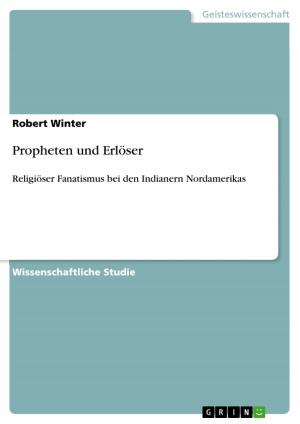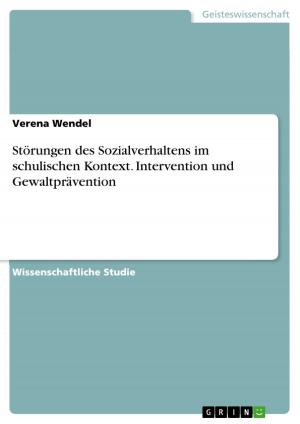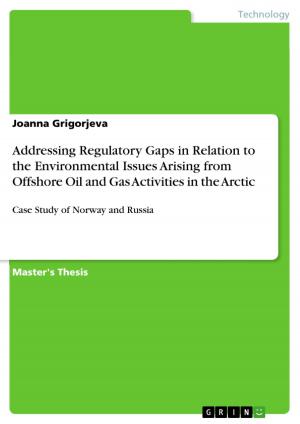The Internationalization of Energy firms
A literature review
Business & Finance, Economics, International| Author: | Martina Geistberger | ISBN: | 9783656101833 |
| Publisher: | GRIN Verlag | Publication: | January 16, 2012 |
| Imprint: | GRIN Verlag | Language: | English |
| Author: | Martina Geistberger |
| ISBN: | 9783656101833 |
| Publisher: | GRIN Verlag |
| Publication: | January 16, 2012 |
| Imprint: | GRIN Verlag |
| Language: | English |
Bachelor Thesis from the year 2011 in the subject Economics - International Economic Relations, grade: 1, Vienna University of Economics and Business (Institute for International Business), language: English, abstract: The process of globalization, the constant search for economies of scale and the more efficient allocation of scarce resources are some of the commonly identified drivers of internationalization. The opening of more and more economies worldwide to foreign capital and international trade leads us to the question if any economy could still exist as an autarkic market without sacrificing prosperity. Expanding into foreign markets does not simply mean for a firm to benefit from growth opportunities, it also implies accepting the challenge to compete with firms in a completely diverse country. As regards the specific case of Energy firms, we have to consider that these kinds of industries differ significantly from other sectors of the economy. Taking this into consideration, it is crucial for us to analyze the differing corporate strategies of these firms in order to figure out the decisive underlying values, processes and aims. Despite the fact that the choice of the suitable entry mode is one of the most frequent empirically analyzed topics in International Business, it is often not possible to follow exactly a theoretical Internationalization theory. Firms rather combine different approaches in order to figure out an individual strategy - most suitable for the corporation. This thesis will analyze how Energy companies find out this perfect approach, which criteria they take into account, how these criteria are ranked according to the individual importance and in general, what motives exist for expanding abroad. Furthermore, the author will analyze the development of energy firms in the past as well as current and future trends by drawing comparisons with other companies in the extractive industry.
Bachelor Thesis from the year 2011 in the subject Economics - International Economic Relations, grade: 1, Vienna University of Economics and Business (Institute for International Business), language: English, abstract: The process of globalization, the constant search for economies of scale and the more efficient allocation of scarce resources are some of the commonly identified drivers of internationalization. The opening of more and more economies worldwide to foreign capital and international trade leads us to the question if any economy could still exist as an autarkic market without sacrificing prosperity. Expanding into foreign markets does not simply mean for a firm to benefit from growth opportunities, it also implies accepting the challenge to compete with firms in a completely diverse country. As regards the specific case of Energy firms, we have to consider that these kinds of industries differ significantly from other sectors of the economy. Taking this into consideration, it is crucial for us to analyze the differing corporate strategies of these firms in order to figure out the decisive underlying values, processes and aims. Despite the fact that the choice of the suitable entry mode is one of the most frequent empirically analyzed topics in International Business, it is often not possible to follow exactly a theoretical Internationalization theory. Firms rather combine different approaches in order to figure out an individual strategy - most suitable for the corporation. This thesis will analyze how Energy companies find out this perfect approach, which criteria they take into account, how these criteria are ranked according to the individual importance and in general, what motives exist for expanding abroad. Furthermore, the author will analyze the development of energy firms in the past as well as current and future trends by drawing comparisons with other companies in the extractive industry.















